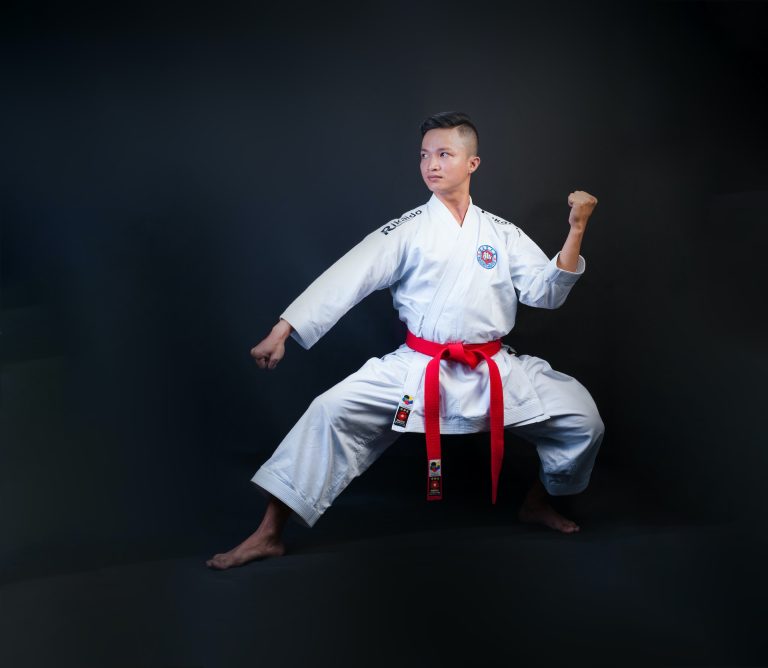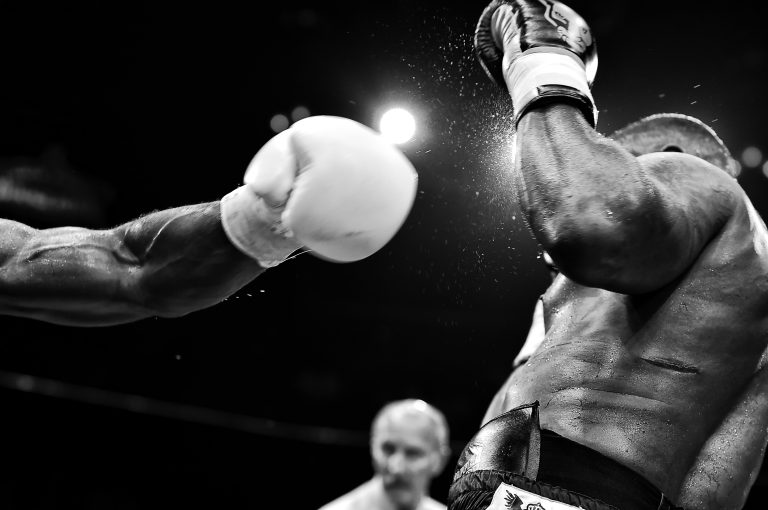Durchschnittsalter für den Karate schwarzen Gürtel
Karate ist ein Kampfsport, der für seine Graduierungen durch unterschiedliche farbige Gürtel bekannt ist. Der schwarze Gürtel gilt als höchste Auszeichnung für einen Karateka und zeigt, dass er ein Meister seines Handwerks ist.
Es gibt viele Mythen und Missverständnisse darüber, wie lange es dauert, um den schwarzen Gürtel zu erreichen und welches Durchschnittsalter für diese Graduierung angemessen ist. In diesem Blogbeitrag werden wir uns mit dem Durchschnittsalter für den Karate schwarzen Gürtel befassen und ob es tatsächlich eine bestimmte Altersgrenze gibt.
Es gibt keine spezifische Altersgrenze für den Erhalt des schwarzen Gürtels im Karate. Es hängt alles von dem individuellen Trainingsplan des Schülers ab und davon, wie viel Zeit und Energie er in die Ausbildung investiert. Junge Kinder und ältere Erwachsene können gleichermaßen den schwarzen Gürtel erreichen, solange sie bereit sind, hart zu arbeiten und sich auf das Training zu konzentrieren.
Ein Faktor, der das Alter beeinflussen kann, in dem jemand den schwarzen Gürtel erhält, sind die Anforderungen der jeweiligen Karateschule oder des Verbands. Einige Schulen haben sehr strenge Anforderungen für jede Gürtelstufe, während andere möglicherweise flexibler sind. Schüler, die einer rigorosen Trainingsroutine folgen, benötigen im Allgemeinen mehr Zeit, um den schwarzen Gürtel zu erreichen.
Es ist auch wichtig zu beachten, dass das Alter eines Karatekas nicht immer ein Indikator für seine Fähigkeiten und Fertigkeiten ist. Ein Schüler kann jahrelang trainiert haben und den schwarzen Gürtel noch nicht erreicht haben, während ein anderer Schüler, der kürzer trainiert hat, bereits einen schwarzen Gürtel besitzen kann. Der schwarze Gürtel zeigt nicht nur die Fähigkeiten des Schülers, sondern auch seine Fähigkeit, sich selbst zu fordern und durchzuhalten.
Insgesamt gibt es kein festes Durchschnittsalter, um den schwarzen Gürtel im Karate zu erreichen. Jeder Schüler ist anders und jeder muss seinen eigenen Weg finden. Wenn Sie jedoch hart arbeiten und sich auf das Training konzentrieren, können Sie früher oder später den schwarzen Gürtel erreichen – unabhängig von Ihrem Alter.
Zusammenfassung
Der schwarze Gürtel im Karate ist die höchste Auszeichnung, die ein Schüler erreichen kann. Es gibt keine spezifische Altersgrenze für den Erhalt des schwarzen Gürtels, da jeder Schüler einen individualisierten Trainingsplan hat und sich auf andere Weise entwickelt. Karatekas sollten sich darauf konzentrieren, hart zu arbeiten und ihre Fähigkeiten zu verbessern, unabhängig vom Alter. Der schwarze Gürtel ist nicht nur ein Beweis für die Fähigkeiten des Schülers, sondern auch für seine Fähigkeit, sich selbst zu fordern und durchzuhalten.
FAQs About the Average Age for Karate Black Belt
Karate is a martial art that has gained immense popularity in the world. It offers a powerful combination of physical and mental benefits that cannot be found anywhere else. One of the significant milestones for any karate practitioner is achieving a black belt, which denotes a high degree of expertise and mastery. One question that aspiring karate practitioners frequently ask is what the average age is for achieving a black belt. In this post, we will address the most commonly asked questions to provide clarity on this topic.
1. What is the average age for achieving a black belt in karate?
The average age for achieving a black belt in karate varies between different schools and styles. However, the general consensus is that it usually takes around three to five years of consistent training to earn a black belt. Most people start training in karate when they are in their early to mid-teens, which means that they can expect to achieve a black belt in their late teens or early twenties.
2. Is there a minimum age for getting a black belt in karate?
There is no specific minimum age requirement for getting a black belt in karate. However, most schools have a minimum age requirement of 16 or 18 years, which is the age when most people have developed sufficient physical strength and commitment to endure the rigorous training required.
3. Can you get a black belt in karate after the age of 50?
Yes, it is possible to get a black belt in karate after the age of 50. Age should not be a barrier to achieving your goals in karate, as long as you are dedicated and committed to the training. Many people have achieved black belts in karate well into their 60s, 70s, and even beyond.
4. Can I still achieve a black belt if I started training late in life?
Yes, it is entirely possible to achieve a black belt even if you started training late in life. Karate training is not solely about physical attributes; it also requires mental and emotional strength, discipline, and persistence. As long as you have the necessary drive and determination, you can achieve great things in karate, regardless of your age.
5. Does physical fitness play a vital role in achieving a black belt in karate?
Yes, physical fitness is crucial in achieving a black belt in karate. Karate requires a lot of strength, flexibility, speed, and endurance. You must have a strong core and upper body to withstand the powerful strikes and blocks used in karate. Moreover, it requires a great deal of cardiovascular stamina to cope with the prolonged and intense training sessions.
6. Are there any qualifications required for achieving a black belt in karate?
There are no formal educational or academic qualifications required for achieving a black belt in karate. However, most schools will require you to pass a grading examination, which typically includes extensive knowledge of the history, philosophy, and techniques of karate.
7. How long does it take to prepare for a black belt grading examination in karate?
The time it takes to prepare for a black belt grading examination in karate varies depending on the individual’s ability and the school’s standards. Typically, it takes around six months to a year of dedicated and rigorous training to prepare for a black belt grading examination. However, this timeline can vary considerably and can be influenced by various factors such as the proficiency level, dedication, and ability of the student.
8. What are the benefits of achieving a black belt in karate?
Achieving a black belt in karate represents a significant milestone and a great sense of accomplishment for any practitioner. It symbolizes a high level of technical proficiency, commitment, and dedication to the art form. Moreover, it provides numerous physical and mental benefits, such as improved cardiovascular fitness, strength, flexibility, confidence, and stress relief.
9. What is the significance of the black belt in karate?
In karate and other martial arts, the black belt is regarded as the final stage of the journey towards mastering the art form. It represents a deep understanding of the techniques, philosophy, and history of the art form. The black belt is also a symbol of the practitioner’s perseverance, dedication, and commitment to the practice of karate.
Conclusion
In conclusion, the average age for achieving a black belt in karate varies depending on various factors such as the style, school, proficiency level, and dedication of the practitioner. However, it typically takes several years of consistent training to achieve a black belt. Age should not be a limiting factor in achieving a black belt in karate, as many people have achieved this milestone well into their later years. With dedication, commitment, and hard work, anyone can achieve a black belt in karate and experience the countless physical and mental benefits that come with it.
Inhaltsverzeichnis






